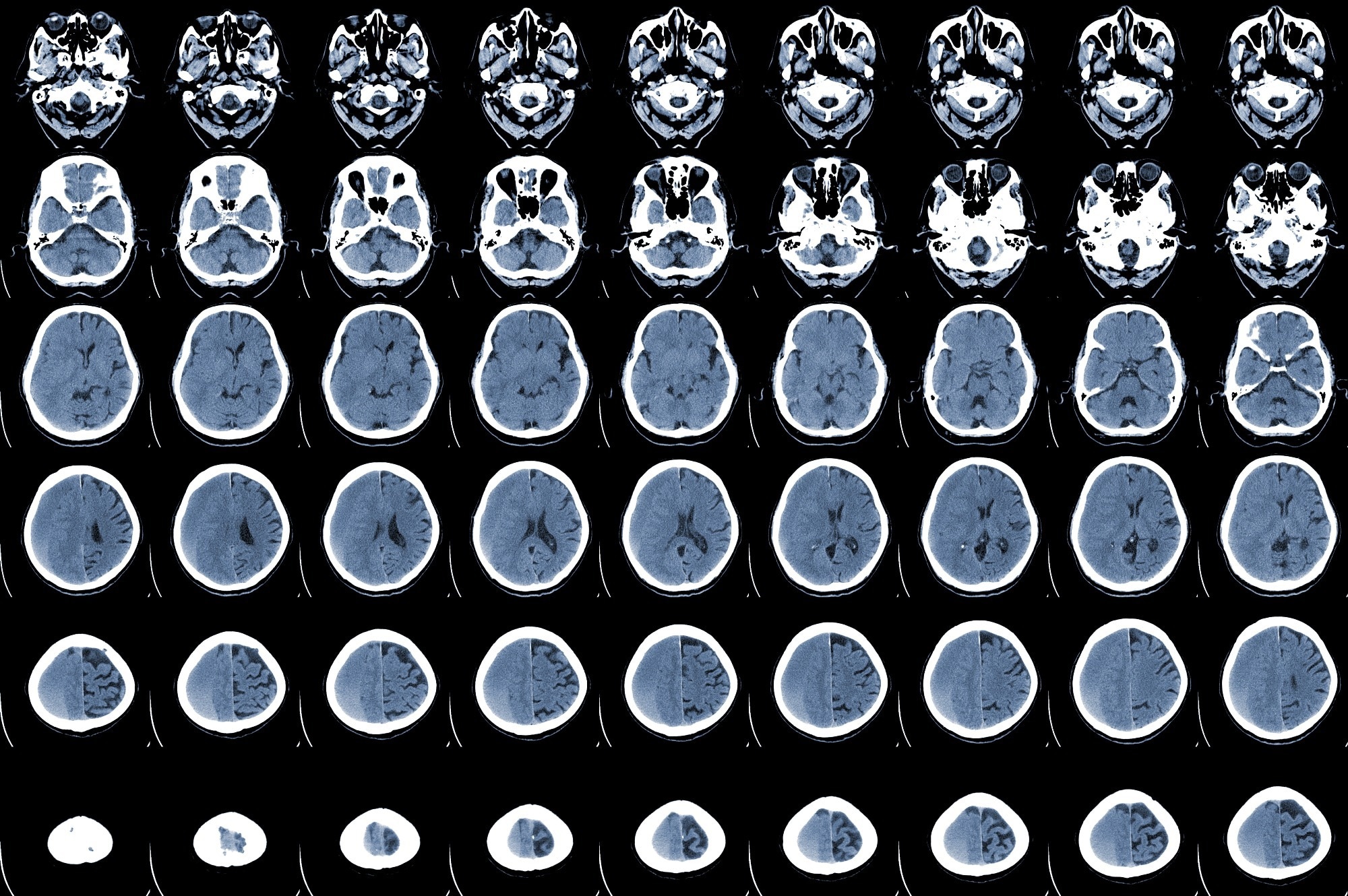
The ongoing coronavirus disease 2019 (COVID-19) pandemic, caused by severe acute respiratory syndrome coronavirus-2 (SARS-CoV-2), has affected millions of individuals worldwide, with a high rate of mortality and morbidity. Importantly, SARS-CoV-2 infection has been associated with an increased risk of thromboembolic events. Acute ischemic stroke (AIS) is one of the common cerebrovascular complications linked to COVID-19. A recent PLOS ONE journal study evaluated the impact of COVID-19 on neurological outcomes in AIS patients.
 Study: The impact of SARS-CoV-2 infection on the outcome of acute ischemic stroke—A retrospective cohort study. Image Credit: April stock / Shutterstock
Study: The impact of SARS-CoV-2 infection on the outcome of acute ischemic stroke—A retrospective cohort study. Image Credit: April stock / Shutterstock
Background
Several pathophysiological mechanisms, such as the downregulation of the angiotensin-converting enzyme-2 (ACE2) receptors and myocardial injury associated with COVID-19, were found to enhance the risks of ischemic stroke. Multiple studies have indicated that the risk of AIS increases with higher SARS-CoV-2 disease severity.
Many studies have indicated that COVID-19-related stroke occurs in younger patients, with little to no risk factors. In addition, the majority of AIS patients with concomitant SARS-CoV-2 infection were elderly and had several cardiovascular complications. Cardiovascular risk factors were also found to enhance the risk of AIS.
About the Study
The current retrospective study analyzed the data of thirty-two consecutive AIS patients with COVID-19 between the 1st of March 2020 and the 1st of May 2021. It compared the results with fifty-one consecutive non-COVID-19 AIS patients.
All AIS patients considered in this study exhibited acute neurologic signs of stroke and ischemia, confirmed using Magnetic Resonance Imaging (MRI) and Computed Tomography (CT) of the head. For this study, the authors collected relevant demographic data, medical history, stroke characteristics, length of hospitalization, in-hospital mortality, the number of patients transferred to an intensive care unit (ICU) facility, and laboratory test reports.
Study Findings
The study cohort included no patients with mild symptoms; 50% exhibited moderate symptoms, 37.5% had severe infections, and 12.5% were critically infected with SARS-CoV-2. Around 31% of the COVID-19 AIS group and 23.5% of the control group were treated with acute reperfusion therapy. Only severe-critical patients required ICU transfer, and their hospitalization duration was marginally longer compared to other groups. A moderately higher mortality rate was observed in severe-critical COVID-19 AIS patients.
Consistent with previous studies, the current study observed no significant difference between COVID-19 AIS and non-COVID-19 AIS groups based on age and sex. However, it must be noted that both groups were marginally male-dominant.
In the context of medical history, the authors did not find any significant difference in the history of malignancy, diabetes, ischemic heart disease, chronic kidney or lung disease, hyperlipemia, and peripheral artery disease (PAD) between the COVID-19 AIS and the control group. However, the prevalence of hypertension was considerably lower in the COVID-19 AIS group. The authors explained that in the non-COVID-19 group, the proportion of small vessel disease etiology, usually associated with hypertension, is higher than in the COVID-19 group. In addition, all stroke risk factors were more prevalent in COVID-19 patients.
Imaging data revealed that multiple vessel territorial involvement was similar in both COVID-19 AIS and non-COVID-19 AIS groups. A higher large vessel occlusion rate was found in the COVID-19 group, with larger anterior circulation LVO in the COVID-19 AIS group. Notably, in the COVID-19 AIS group, patients with pneumonia mainly exhibited higher LVO prevalence, which indicated a stronger association between COVID-19 pneumonia and LVO. In the future, more research is required to validate this finding.
Interestingly, a significant difference in lymphocyte count (lower) and C-reactive protein (CRP) levels (higher) were found between COVID-19 and non-COVID-19 AIS patients. However, no other relevant difference was found in other tested parameters.
In-hospital mortality was higher in the COVID-19 AIS group, along with an increased disability upon discharge rate. Based on subgroup analysis, the functional outcome of anterior LVO patients in the COVID-19 AIS group was less favorable compared to the non-COVID-19 AIS group. The elderly group, with more cerebrovascular risk factors, was found to be at a higher risk of contracting COVID-19 as well as AIS.
Study Limitations
A key limitation of the current study is its small sample size, which resulted in findings not reaching statistical significance. The study's retrospective design is another limitation, where the authors only assessed laboratory tests and other available medical data but did not conduct patient interviews.
Conclusions
Compared to non-COVID-19 AIS, AIS with SARS-CoV-2 infection resulted in worse functional outcomes, more severe neurological deficits, and higher mortality. Moreover, severe infection was linked with worse outcomes. This study underscores the importance of providing personalized multi-disciplinary care, such as neurological, pulmonological, and intensive care expertise, for this vulnerable group to protect them from unfavorable outcomes.
- Takács, T. T. et al. (2023) The impact of SARS-CoV-2 infection on the outcome of acute ischemic stroke—A retrospective cohort study. PLOS ONE, 18(3), e0282045. https://doi.org/10.1371/journal.pone.0282045, https://journals.plos.org/plosone/article?id=10.1371/journal.pone.0282045
Posted in: Medical Research News | Medical Condition News | Disease/Infection News
Tags: ACE2, Angiotensin, Chronic, Computed Tomography, Coronavirus, Coronavirus Disease COVID-19, covid-19, C-Reactive Protein, CT, Diabetes, Disability, Enzyme, Heart, Heart Disease, Hospital, Imaging, Intensive Care, Ischemic Heart Disease, Ischemic Stroke, Kidney, Laboratory, Lung Disease, Lymphocyte, Magnetic Resonance Imaging, Mortality, Pandemic, Peripheral Artery Disease, Pneumonia, Protein, Research, Respiratory, SARS-CoV-2, Severe Acute Respiratory, Severe Acute Respiratory Syndrome, Stroke, Syndrome, Tomography

Written by
Dr. Priyom Bose
Priyom holds a Ph.D. in Plant Biology and Biotechnology from the University of Madras, India. She is an active researcher and an experienced science writer. Priyom has also co-authored several original research articles that have been published in reputed peer-reviewed journals. She is also an avid reader and an amateur photographer.
Source: Read Full Article